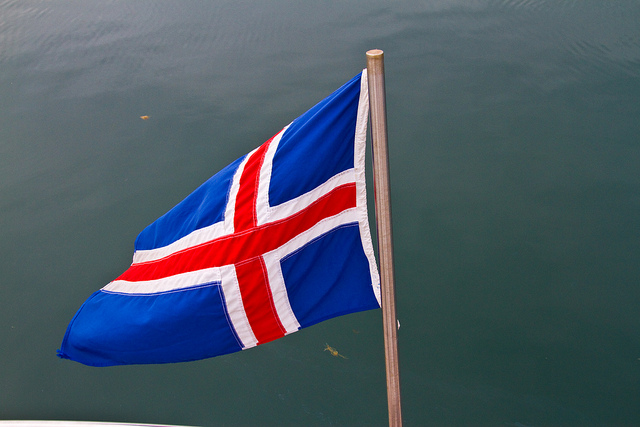
In what can be seen as a victory for center-right groups across the world, especially in Europe, Iceland’s Independence Party came out on top in this week’s elections with nearly 30% of the vote. The second-highest vote total went to the Left-Green Party, which received about 16% of the vote.
One of the newest parties to enter the fray was the Pirate Party, a radical, left-leaning group formed of anarchists and hackers. The party was founded in 2012 and gained prominence with its push to repeal the government’s blasphemy laws. With the release of the Panama Papers in April of this year, the party gained greater recognition by leading massive protests against the government.
The Pirate Party promotes itself as anti-corruption, and focuses on political and social issues rather than economic. Indeed, little was said by the party about how to solve the economic problems of the country. Instead, some of the main issues for this party are anti-intellectual property. They advocate for lessening protections under copyright and patent laws to promote free and open knowledge on the Internet. This is not surprising coming from a group of former hackers, but their surge in Iceland sets a dangerous precedent for future elections.
While the Pirate Party ran on a platform mentioning little about solving economic issues, the Independence Party promised to grow Iceland’s economy through free market principles, lower taxes, and limited government intervention. The Independence Party, formed all the way back in 1929, has been a dominant and consistent force in Icelandic politics. Indeed, the party has won every election until 2009, meaning every Prime Minister until then has come from this party.
At the end of the day, the main issue in the election seemed to be the economy. After the 2008 financial collapse, Iceland’s economy is still very vulnerable, and voters recognized that fact when they went to the polls. According to Skafti Harðarson, Chairman of the Iceland Taxpayers Association, the voters sent a clear message as “the majority voted for a continuation of stability, lower taxes and less government intervention.”
Indeed, the idea of stability resonated well with Iceland’s economy, as it rallied after the election results were announced. With the Independence Party securing first place, the crown currency hit an 8-year high and government bonds received a boost. This growth gives further credibility to the party’s message that it can provide the stable economy needed to carry Iceland through the next several years.
After the election results were made official, the current Prime Minister submitted his resignation to the President. His party, the Progressive Party, lost nearly 13 percentage points of support from the previous election. The Progressive Party will join with the Independence Party to try to form a center-right coalition government, but with a Prime Minister from the Independence Party. If all goes as planned, the leader of the Independence Party, Bjarni Benediktsson, will likely emerge as the next Prime Minister.
Even though the Independence Party has the support of the Progressive Party, they still do not have enough seats to form a coalition government. Currently, these center-right groups are 3 seats short of a majority, while the leftist groups trying to form a coalition government lack 5 seats.
When forming a coalition government after this election, Mr. Harðarson notes that “getting a majority together may prove tricky as it will take a minimum of three parties to work together to create a majority.” This means one of the current coalitions will have to pull in another party receiving seats to form a functioning government.
Without a majority coalition, the President of Iceland decides who has the mandate to govern and officially form a coalition. With a clear majority, the President gave the mandate to govern to the Independence Party this week. This is a clear victory for free-market principles and lower taxes in Iceland.

